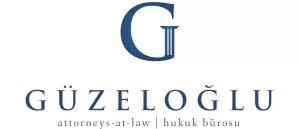Turkish Supreme Court's jurisprudence tends towards a narrow interpretation of public policy. Majority of the admitted public policy defense were constructed on the following arguments: violation against the equal treatment of the parties and their right to be heard; judgments against morals; and awards that violate international public policy.
There are two main instruments which govern the enforcement of international arbitral awards in Turkey. These are International Private and Procedure Law ("IPPL") and New York Convention; whereby the former applies only if the origin of the award is a non-contracting State to New York Convention or the dispute is of a non-commercial nature. However, there are no significant discrepancies between Article 5 of the New York Convention and the relevant provisions of IPPL concerning the grounds for refusing the enforcement of an international arbitral award. That said, while the New York Convention grants national courts the discretion to enforce an award despite the existence of grounds for refusal, IPPL stipulates that the competent court shall reject the enforcement in the presence of any grounds specified therein.
The party initiating the enforcement proceedings must provide: the original or a duly certified copy of the arbitration agreement and the original or a duly certified copy of the arbitral award which has duly become final and executable or is binding upon the parties. If these documents are in a language other than Turkish, it is also required to provide their official translations.
The Supreme Court's jurisprudence tends towards a narrow interpretation of public policy, though that was not the case in the past. The majority of the claims that have been previously admitted in relation to public policy defence were constructed on the following arguments: violation against the equal treatment of the parties and their right to be heard; judgments against morals; and awards that violate international public policy.
Under Turkish law, enforcement of arbitral awards is subject to simplified proceedings which, compared to written proceedings, take a relatively shorter period, whereby there shall be no joinder and rejoinder petition stages; together with implementation of other time-saving rules of procedure. However, on average, enforcement procedures still take two to three years together with the appeal process.
This article first appeared in the second Edition of Global Legal Insights–International Arbitration; published by Global Legal Group Ltd, London.
The content of this article is intended to provide a general guide to the subject matter. Specialist advice should be sought about your specific circumstances.


